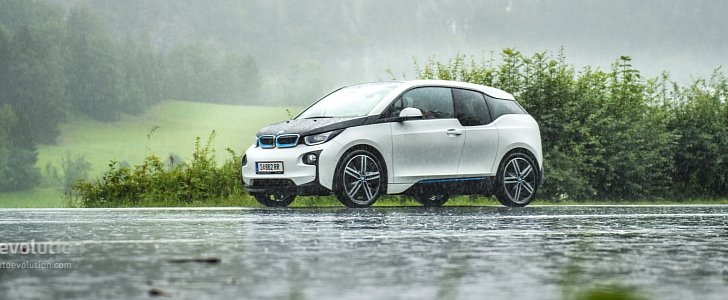As part of a pilot ran in California by a utility company, 100 BMW i3 owners were selected and offered $1,000 to take part in a research. The aim of the whole thing is to measure the impact charging times has on the electrical grid of the San Francisco Bay Area.
The Pacific Gas & Electric company will run an 18-month trial that starts this week and will try and reduce the impact electric cars have on the grid. Owners of the BMW i3 are paid to delay charging their vehicles when the power grid is under pressure.
That being said, 100 of them have been picked and paid up front, to do this for the next 18 months. This is just one of the hundreds of experiments underway at the moment around the world that are trying to figure out the best way to recharge EVs.
The problem is, with the number of such models ever increasing, the strain put on the electric grid rises, especially if everyone is charging at the same time.
Another solution to this problem is the usage of batteries that can store electricity gathered from the main grid during night time and then use it to replenish cars whenever they need to.
This version of a backup plan could also work in reverse. For example, if there’s a power outage and your car is connected to the grid at that exact moment, you could get paid in case you agree to allow other people to use the energy stored in the battery at that time.
In this regard, BMW wants to use older batteries from test vehicles inside houses, to provide electricity whenever needed. It’s nearly the same principle as the one used by Tesla for its Powerwall concept.
"We are quite committed to the adoption of electric vehicles in California," said Jana Corey, PG&E's director of electrification and alternative fuels. "The BMW pilot is an effort to demonstrate that we can manage the load on these vehicles in a very reliable way."
This wouldn’t be the first time people use big batteries around their house to provide electricity nor the first time cars are being used as power sources.
In Japan, people have been using Nissan Leafs for emergency backup power since the country took several nuclear reactors offline in the wake of the Fukushima disaster, according to Automotive News. Just 36 cars can provide energy for up to 140 houses if needed.
However, carmakers are concerned about the effect this sort of variation would have on the batteries mounted on the cars as this could make them wear earlier. Even so, feeding the city’s electrical grid from the cars’ batteries would only happen in the case of an emergency.
That being said, 100 of them have been picked and paid up front, to do this for the next 18 months. This is just one of the hundreds of experiments underway at the moment around the world that are trying to figure out the best way to recharge EVs.
The problem is, with the number of such models ever increasing, the strain put on the electric grid rises, especially if everyone is charging at the same time.
Another solution to this problem is the usage of batteries that can store electricity gathered from the main grid during night time and then use it to replenish cars whenever they need to.
This version of a backup plan could also work in reverse. For example, if there’s a power outage and your car is connected to the grid at that exact moment, you could get paid in case you agree to allow other people to use the energy stored in the battery at that time.
In this regard, BMW wants to use older batteries from test vehicles inside houses, to provide electricity whenever needed. It’s nearly the same principle as the one used by Tesla for its Powerwall concept.
"We are quite committed to the adoption of electric vehicles in California," said Jana Corey, PG&E's director of electrification and alternative fuels. "The BMW pilot is an effort to demonstrate that we can manage the load on these vehicles in a very reliable way."
This wouldn’t be the first time people use big batteries around their house to provide electricity nor the first time cars are being used as power sources.
In Japan, people have been using Nissan Leafs for emergency backup power since the country took several nuclear reactors offline in the wake of the Fukushima disaster, according to Automotive News. Just 36 cars can provide energy for up to 140 houses if needed.
However, carmakers are concerned about the effect this sort of variation would have on the batteries mounted on the cars as this could make them wear earlier. Even so, feeding the city’s electrical grid from the cars’ batteries would only happen in the case of an emergency.
